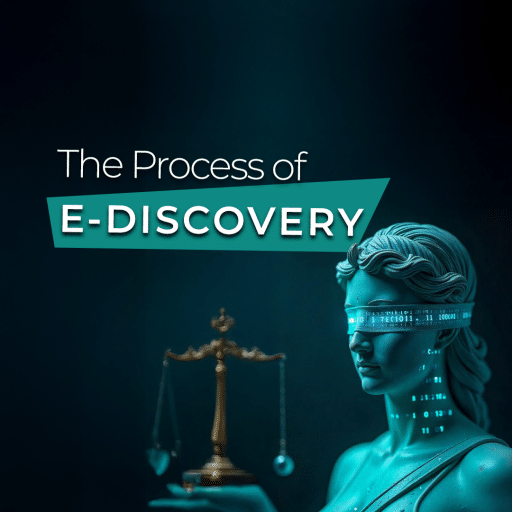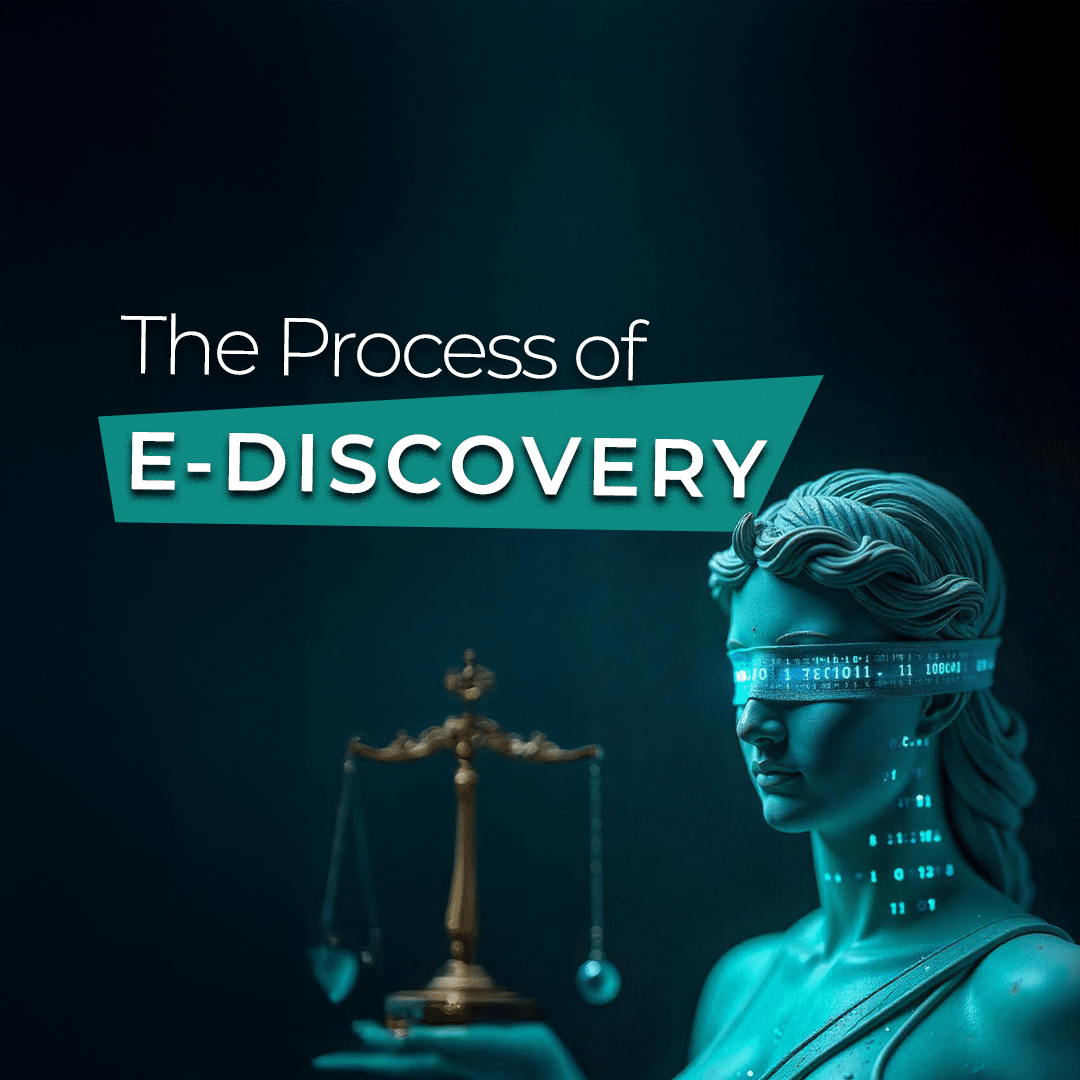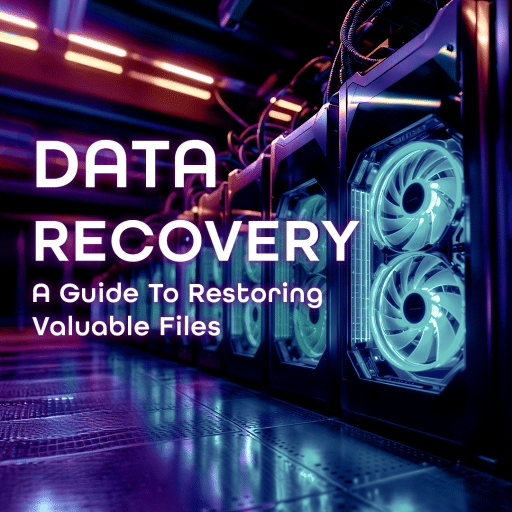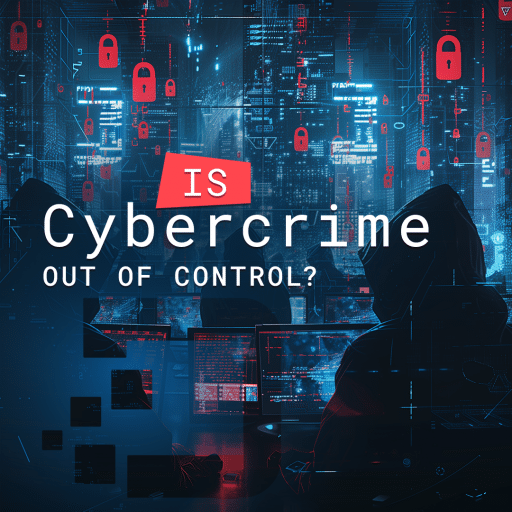The internet becomes more entwined with every aspect of our lives by the second. In the last 20 years, the number of global internet users has quintupled, reaching a staggering total of 5.5 billion people(1).
The interconnectivity of the internet leads us to go online to conduct our personal, professional, and financial business. These interactions leave behind a trail of information known as a digital footprint, and this data can be called upon when legal issues arise.
The process of identifying, collecting, preserving, and reviewing this information is known as e-discovery. This can be a tall task for unfamiliar legal firms, and an improper electronic discovery process can result in hefty litigation costs for businesses. So, it’s important to consider organizations such as DFC who can help manage these large volumes of complex digital data.
Understanding E-Discovery in the Legal Context
It’s important to have a solid understanding of the e-discovery process to make sure you correctly corroborate any legal cases with the digital evidence in your possession. Knowing what data may be called upon and which situations necessitate electronic discovery services allows you to navigate the legal landscape in the appropriate manner.
What Is ESI and Why It Matters
Electronically stored information, or ESI, is any data that is created, used, stored on, and requires an electronic device to access. This includes electronic communications, multimedia files, digital documents, internet history, and any other logs of online activity.
The information that these interactions leave behind can be used to determine the timeline, motive, and potential suspects of illicit activities. Understanding not only how to collect this evidence but also how to present it to a court of law can be the difference in successfully pleading your case or requesting a motion.
Common Legal Scenarios Requiring E-Discovery
There are numerous situations where a law firm may find themselves called upon to conduct e-discovery. Examples of these scenarios are as follows:
- Commercial litigation and corporate disputes
- Employment law and internal investigations
- Family law including asset tracing and communication recovery
- Intellectual property and trade secret cases

The E-Discovery Process Step-by-Step
- Identification and Preservation: The first step in collecting digital evidence for litigation is identifying where it is stored. This requires a complete scan of all physical and digital databases with extreme care to ensure no data is altered.
- Collection and Processing: After data has been located, it needs to be carefully extracted or imaged with secure protocols to avoid accidental manipulation. ESI may need to be decrypted and deleted data may need recovered and converted to standardized forms. Irrelevant or privileged information will need to be filtered out.
- Review and Production: Once ESI has been carefully collected and determined relevant, you will need to organize and document the data. This task falls on the custodian responsible for controlling this information. They will need to apply search terms to expedite the review process and export the document in a legally compliant format.
Key Challenges in E-Discovery
Investigators face numerous challenges when collecting digital evidence for legal matters. When ESI is requested, large quantities of data must be analyzed with extreme care in a timely fashion. Even after the initial investigation, extreme caution is necessary to avoid violating regulations.
Volume and Complexity of Data
Organizations often struggle to present digital evidence in litigation cases due to the sheer amount of digital information stored in their various databases. Furthermore, there is an incessant expansion of modes in which ESI is produced.
With this development comes the introduction of new challenges in recovering data, such as ephemeral messaging platforms, data encryption, and the introduction of new technology. The migration to cloud storage requires specialized electronic discovery services and data preservation practices due to the increased accessibility and frequent alteration of data.
Risk of Spoliation and Chain of Custody Issues
Maintaining evidence in its exact state is of the most important considerations in the digital forensics process. Spoilation is the legal term used to describe the altering or destruction of evidence, and it can result in dismissal.
Because of this, law firms often must employ legal holds to the organizations that possess this data to ensure it is not edited or deleted. It is important that these organizations are proactive with the storage and preservation of ESI so they can seamlessly present it when called upon.
Privacy and Compliance Considerations
Another factor that impacts how electronic discovery services are conducted is privacy regulations. These statutes require legal firms and organizations to protect privileged information and avoid accidental disclosure as they sift through terabytes of information.
E-discovery must adhere to regulations like the EU’s General Data Protection Regulation (GDPR), the Health Insurance Portability and Accountability Act (HIPAA), and the California Consumer Privacy Act (CCPA). This demands special care when handling data pertaining to personally identifiable information such as client communications, HR records, and medical data.
How Digital Forensics Corp. Supports Law Firms
If you are unfamiliar with e-discovery or haven’t placed much importance on the issue, you may want to consider the services of digital forensics professionals such as the ones at DFC. Our team is SOC 2 Type II certified, meaning you can trust us to collect, catalog, and conserve your data while complying with legal and privacy requirements.
Forensic-Level Collection
Our team of certified digital forensics specialists are experienced and equipped to perform secure data acquisition. We employ industry standard technology in device imaging and data recovery to ensure that evidence is carefully extracted and remains intact. Additionally, we can utilize software tools and analyze physical devices to recover lost data.
Expert Processing and Review Preparation
We can comb through the digital evidence to determine relevant information and help you avoid data dumping, expediating the review process to save you time and money. Our findings can be used to prepare digital timelines, communication maps, and file history. Additionally, our in-house legal counsel ensures our process is compatible with legal formatting and time restraints.
Preservation and Testimony Support
To guarantee the admissibility of our findings in court, we document our entire digital forensic process from collection to presentation to sustain the chain of custody. Furthermore, we can assist in verifying the authenticity of digital evidence through metadata analysis. We can even produce sworn declarations and provide expert witness support.
Benefits of Partnering with a Forensic E-Discovery Provider
Law firms may want to consider the assistance of an e-discovery provider for the following reasons:
- Enhanced Accuracy and Integrity: E-discover professionals can help a legal firm ensure that data is not accidentally modified or destroyed and that’s its presented in a way that’s admissible in court.
- Time and Cost Efficiency: Outsourcing e-discover services can reduce the burden on a law firm’s internal staff and accelerate the discovery timeline with industry-standard tools and complete focus.
- Scalability and Support Across Case Sizes: Digital forensics experts will be more experienced in dealing with cases of all sizes, from single custodian issues to large-scale corporate litigation. They will know how to adapt their process for issues such as international data, data across multiple devices, and extensive data history.
Final Thoughts on E-Discovery for Legal Teams
Whether you’re facing litigation, trying to reach a settlement, or are prosecuting someone else, e-discover plays a central role in legal success. As we delve deeper into the digital landscape, data discovery has also transitioned away from paper-based processes.
As such, the need for forensically sound approaches to collecting digital evidence for legal cases has become paramount. Law firms may be less equipped to retrieve this data due to limited digital expertise or lack of resources. That’s where digital forensics experts like the ones at DFC can help.
If you’re involved in a legal case and have been requested to provide ESI, reach out to DFC today and let us help provide the evidence to fight your case.
Sources:
DISCLAIMER: THIS POST IS FOR INFORMATIONAL PURPOSES ONLY AND IS NOT TO BE CONSIDERED LEGAL ADVICE ON ANY SUBJECT MATTER. DIGITAL FORENSICS CORP. IS NOT A LAWFIRM AND DOES NOT PROVIDE LEGAL ADVICE OR SERVICES. By viewing posts, the reader understands there is no attorney-client relationship, the post should not be used as a substitute for legal advice from a licensed professional attorney, and readers are urged to consult their own legal counsel on any specific legal questions concerning a specific situation.







